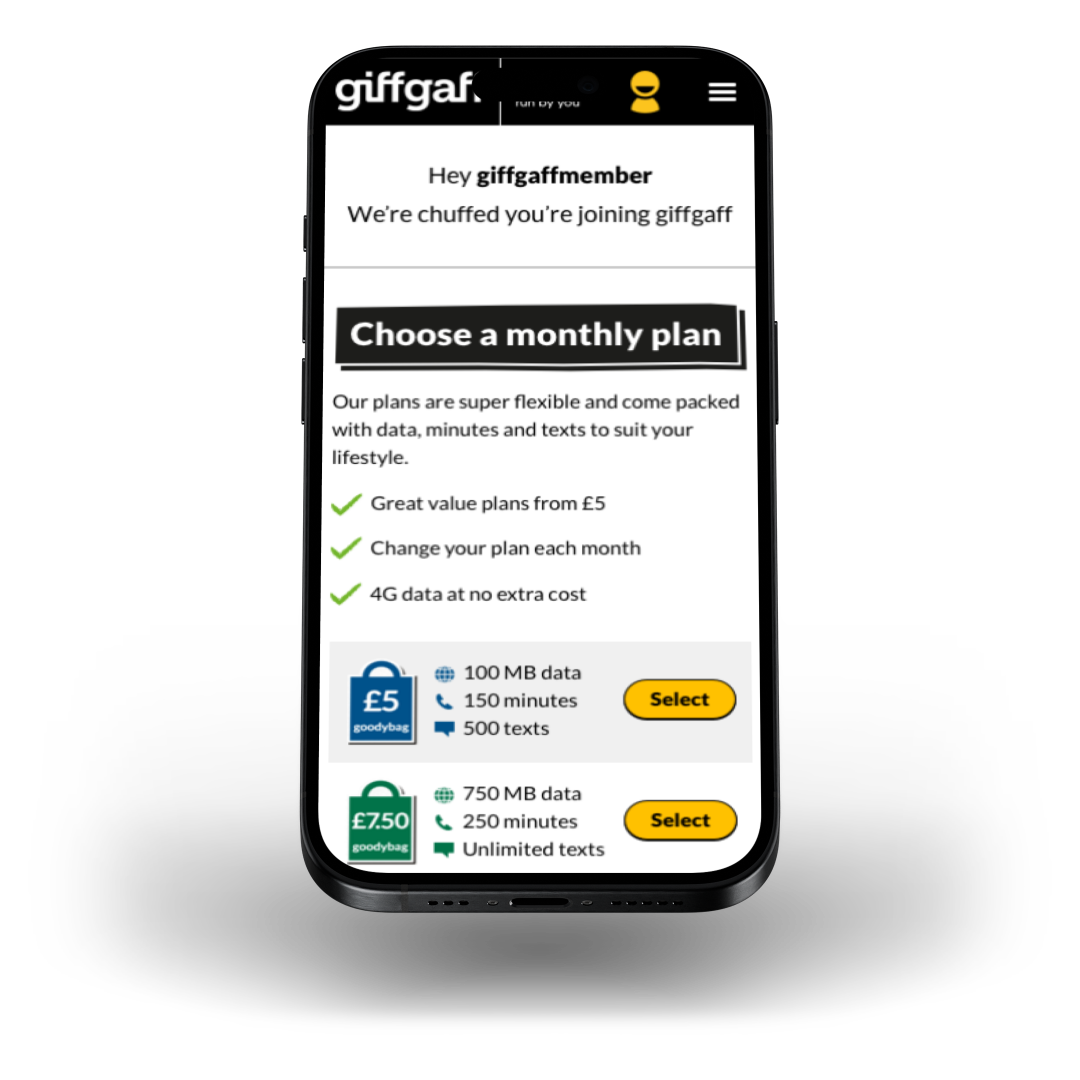Simplifying
SIM activation to boost sales
Role:
Lead UX Content Designer
Team:
Member Acquisition
Skills:
User Research, Content Strategy & Testing
Situation
The SIM activation journey had become a friction point, especially for users trying to activate a SIM with a voucher.
Task
As the Lead UX Content Designer, I aimed to demonstrate the value of content design beyond just words .
Action
We found that a significant percentage of users dropped off at the account creation or login stage.
I conducted user testing to explore why users were unclear about the process.
Key issues identified, there were too many choices, unclear language and difficulty with account creation
We discussed whether to overhaul the entire activation flow or focus on specific improvements, considering technical challenges, time, and resources.
The Product Designer and I mapped out six key scenarios, primarily focusing on a user activating a SIM with a plan and then offering an upsell product based on their specific scenario.
We simplified the SIM activation process, focusing on the primary objective of activating a SIM with a plan.
Reduced the number of choices and aligned the content with user expectations.
We introduced an upsell service once the SIM was activated, providing clear context.
We adopted a mobile-first approach based on the direction of the data and UX strategy. I used conversational design to craft the content, which matched giffgaff’s brand tone of voice.
I simplified the language by replacing branded terms like "goodybag" with clearer terms such as "plan" and "SIM-only plan." I introduced support messaging that guided users and validated their choices throughout the process.
Results
6% increase in SIM activations, adding approximately £665,000 to annual revenue.
3% increase in top-ups after activation, generating an extra £144,000 in annual revenue.




